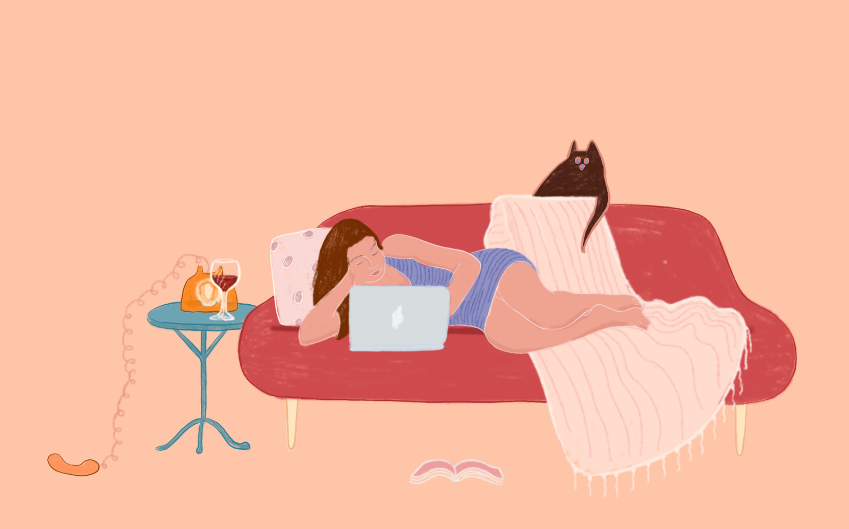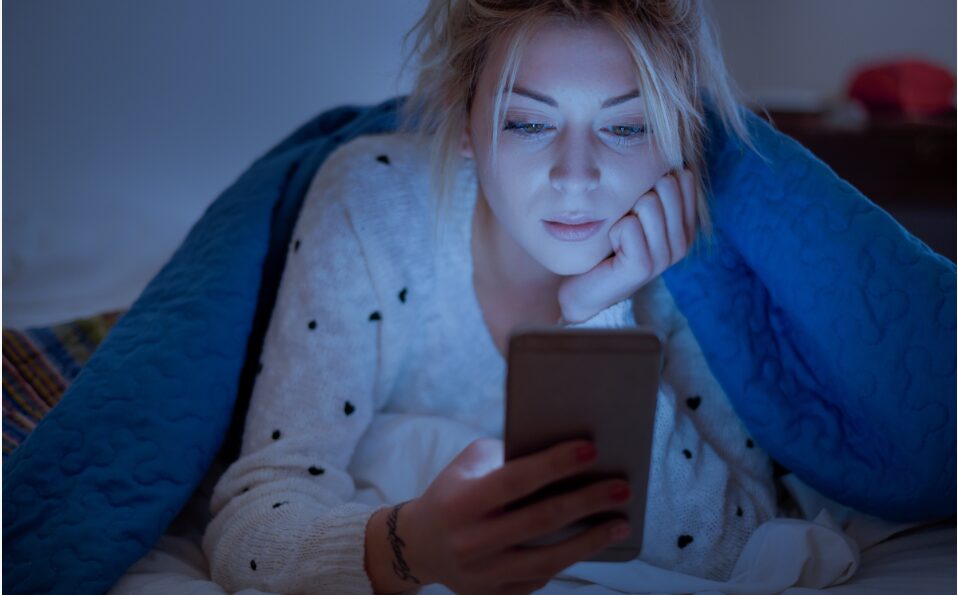
Yeah, sure, sex is good…but have you ever experienced the joy that comes with “canceled plans”?? Picture it, you’re sitting there staring at the closet trying to figure out what outfit gives “This could have been an email” because although you’ll feel bad for not participating in your best friend’s sister’s 33rd birthday dinner, you’re dreading the thought of traffic, parking, and 17 people trying to split one check (with gratuity) while someone is trying to figure out “Who ordered the extra ranch??” Just the idea can be exhausting. Then suddenly, you get the phone call you’ve been praying for. Dinner?! CANCELLED. You break out in a praise dance, snap your GOOD bra off, and type a reply saying “Aww, nooo…I was looking forward to hanging out.” You send the text, and submit your favorite Uber Eats order, at the same time and settle down for a self-care Saturday night.
You may have heard of FOMO (Fear of Missing Out), but how familiar are you with FOBI?? (Fear of Being Involved, or Fear of Being Invited in the first place)?? Research indicates that FOBI can stem from discomfort or hesitation when requested to participate in a group or social gathering. Although it can be a more conflicted subtype, it mostly reflects the mental process of those who first show enthusiasm in attending an event but later feel distressed as the event approaches and all of the associated social obligations become more real. While social anxiety disorder can cause anguish at just the thought of interacting with others, usually in group settings, FOBI isn’t as much anxiety as it is more just disinterest in being widely social.
The global Covid-19 pandemic of 2020 and its aftermath changed the way we socialize and interact as a society. We were forced to isolate, rely on means of communication that supported safe physical distancing, and be creative in the ways we found satisfaction with the simplicity of just staying at home. This may have amplified FOBI, as many people began to get comfortable and complacent with their own individual company, eventually becoming apprehensive about the inconveniences that can come with socializing in groups, whether in private or public spaces. I believe the pandemic catapulted us into a place to be more intentional about our personal boundaries and create spaces to have those boundaries be taken seriously, whether it be physical safety, mental health, or just straight up “I don’t want to come”, or if you want to soften the blow, “I don’t have the bandwidth.” As a single mom, I used to always use my son and lackof babysitter as an excuse when I didn’t want to go somewhere but I didn’t have the guts to say it. Unfortunately, he’s 17 now and certainly doesn’t need a babysitter so that excuse doesn’t really work anymore, which forces me to not only be honest, but accountable with my boundaries, and my commitment to social obligations.
It’s okay to decline the invitation. Once I learned that I didn’t owe anyone an explanation for the way I move, the way I move got a lot less stressful. Life be lifing, and as we get older we see that our lives tend to unfold at different paces than many of our family and friends, so it can sometimes be difficult to navigate relationships as each of us grow in a variety of capacities. Therefore, it’s important to know that physically being there isn’t the only way to show up. Don’t misunderstand, it IS important to physically show up sometimes. Our comfort zones shouldn’t hinder us from participating in meaningful and memorable experiences, but it’s even MORE important to use discernment while listening to your body, mind, and spirit and recognize when you’ve reached your social limits.
Don’t guilt yourself into uncomfortable situations and feel convinced to push past the confines of your desired engagement. Every now and then you deserve to put the world on “Do Not Disturb” because this world can be disturbing. So take your naps, take your time, and take back the power of your personal space.








